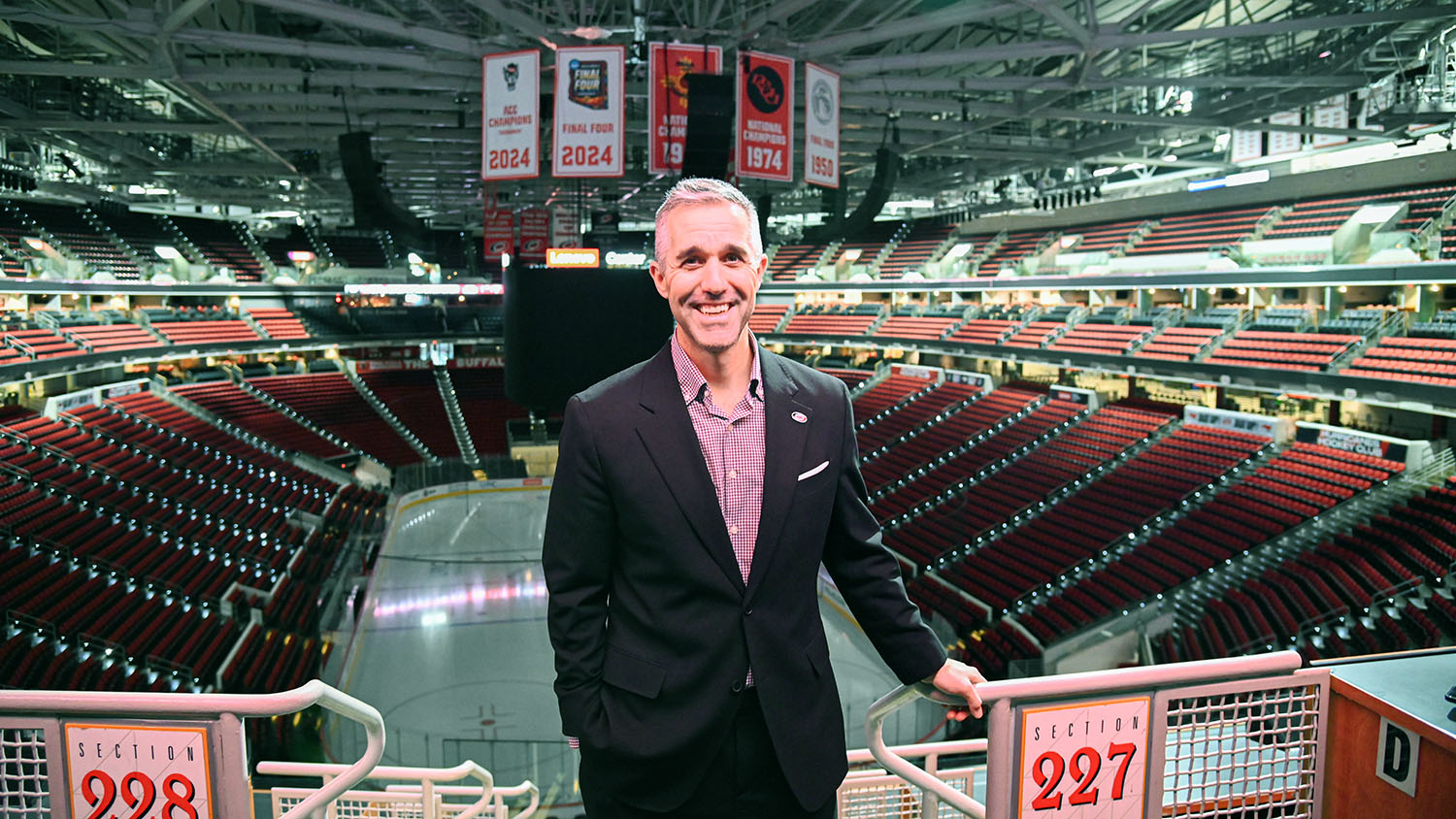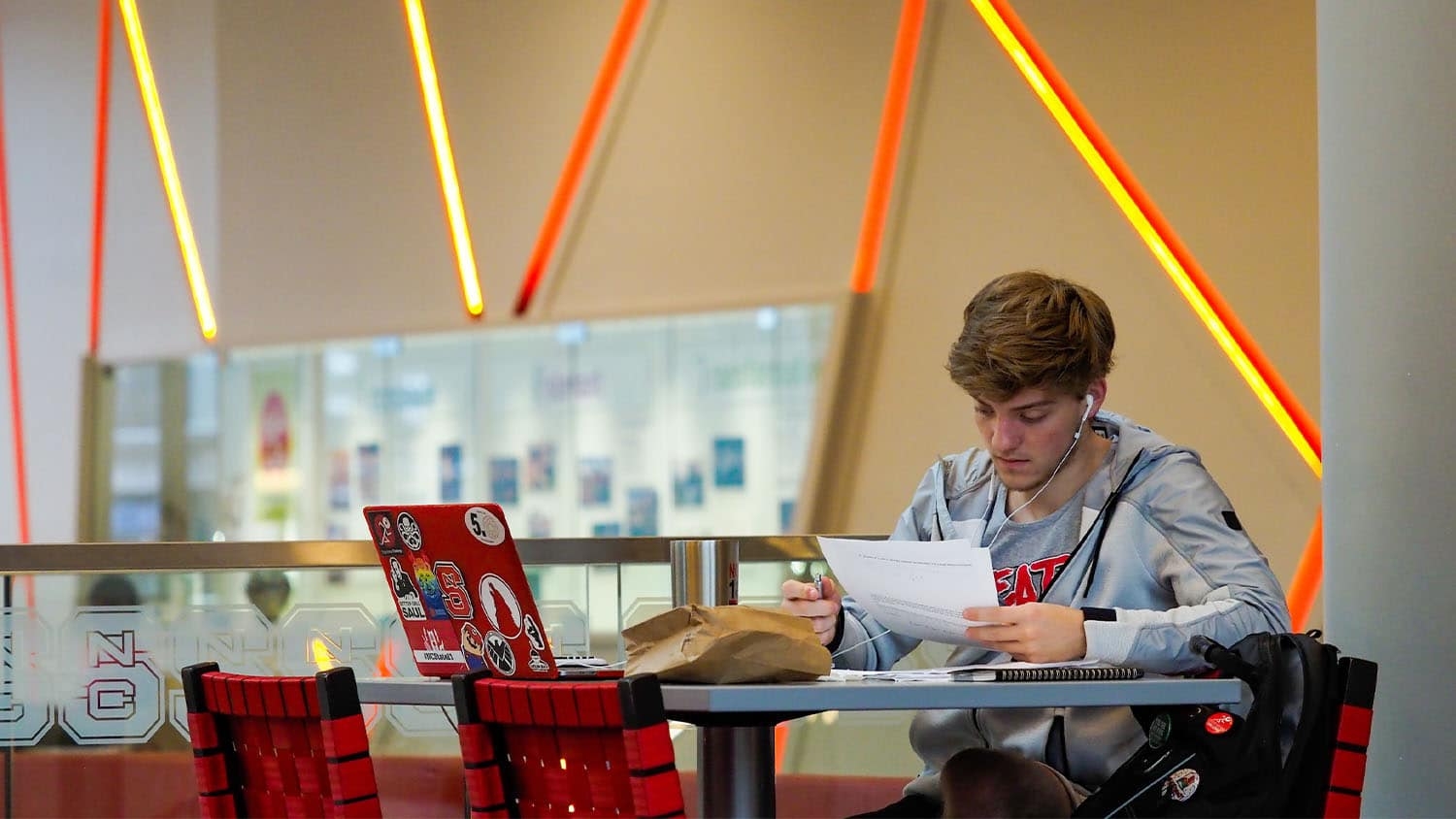Research Into Lean Stigma Gives Undergrad New Insights
For some formerly overweight or obese individuals, losing weight is only step one in what’s often an enduring challenge to improve their health.
Step two, keeping the weight off, is a highly demanding task in and of itself.
Previous research has shown that part of the difficulty in maintaining weight loss can stem from one’s own family, friends or colleagues, who may not approve of or who may feel threatened by others’ lifestyle changes. Those feelings could prompt conscious or unconscious criticism, sabotage or a lack of social support for individuals trying to lose weight, creating yet another hurdle they have to overcome.
Through undergraduate research, NC State communication major Lauren Ray is helping provide insight into how formerly overweight or obese individuals navigate those social barriers.
Working as a research assistant with faculty mentor Dr. Lynsey Romo, Ray aided in a study examining the interpersonal challenges of lean stigma and the communicative strategies people use to manage those threats.
“In a society where we push people to make these lifestyle changes, you would automatically think that weight loss is greeted with positivity, but it’s not,” Ray said. “So, we looked at how, or if, people experience this type of stigma, and also examined the communicative strategies that help them manage or deal with it.”
The study involved 40 in-depth interviews with formerly overweight or obese individuals. Ray’s role in the project included coding and analyzing data from the interviews. She also helped compile participant demographics, isolate key examples of themes in the research and write part of the methods section of a paper she and Romo submitted to the National Communication Association’s 102nd Annual Convention.
Preliminary findings indicate that many participants are aware that their changing behaviors, most notably their eating habits, could cause a rift between themselves and their established social groups. So to convey the impression that they fit in and to avoid threats, participants said they proactively explain their weight management behaviors to reduce judgment, accept but do not consume food from others and eat unhealthy food in smaller portions. In addition, if questioned about their weight management by others, participants said they provide personal choice and health excuses.
Ray, a senior concentrating on interpersonal, organizational and rhetorical communication, got involved in the project after taking Romo’s Relational Communication course. Romo, an assistant professor of communication, made an announcement that she was looking for help from students, and Ray stepped up.
“I feel like I have a greater understanding of where this knowledge comes from and what makes knowledge credible and relevant,” Ray said. “I was apprehensive as I was first learning about the process, but Dr. Romo’s guidance made it a lot easier.”
Ray received a $1,500 Undergraduate Research Award for her work with Romo. This academic year, the College of Humanities and Social Sciences has awarded 24 students a total of $30,000 in undergraduate research awards.
The awards, given this year to students in communication, history, psychology, philosophy and religious studies, political science, English and social work, are part of the provost’s professional experience program. Jointly funded by the provost’s office and the college, they are designed to assist students who are working with faculty on research.
“It’s important to involve students in research, not only to expose them to what research is and what conducting and writing up a study actually entails, but to spark and nurture a love of learning through mentorship,” Romo said. “It is also super helpful for professors to receive help with research from smart, ambitious students. My students and I really became a team.”
Ray said the experience she gained will be very helpful if she pursues graduate school. The research has already made what she’s learning in class more relevant, she said.
“The spark has been ignited,” said Ray, who presented her research to the chancellor during his annual visit to the college this spring. “When I approached Dr. Romo and asked if I could help out, I had no idea all these doors would open.”
- Categories:


